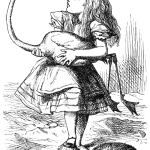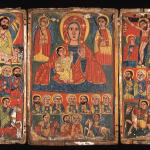Caracas, Venezuela, Jan 13, 2015 / 01:09 pm (CNA/EWTN News).- The Venezuelan bishops conference issued a pastoral exhortation on Monday calling on authorities and citizens alike to an ethical and spiritual renewal in order to come out of the current economic and social crisis facing the nation. The Jan. 12 letter warned that “Marxist socialism is an erroneous path, and therefore should not be instituted.” The bishops began their letter by recalling the events that took place at the beginning of 2014, when political upheaval lead to 43 deaths and hundreds injured. "That grave crisis showed the need for dialogue among government leaders, the opposition, and other sectors. Thanks to the exhortations of Pope Francis and the participation of the apostoli cuncio Archbishop Aldo Giordano, among other things, a dialogue was launched that unfortunately never continued beyond the first few meetings," the bishops said. In recent months, the situation has worsened due to a growing economic crisis rooted in massive external debt, uncontrolled inflation, the devaluation of the currency, and shortages of basic necessities, they explained. Adding to this widespread corruption, the drop in oil prices, and government inefficiency, the main problem and cause of this crisis is "the politico-economic system of a socialist, Marxist or communist nature,” the bishops wrote. "This system is totalitarian and centralist, it establishes control of the state over all aspects of the lives of the citizens and public and private institutions. It also threatens freedom and the rights of persons and associations and has led to oppression and ruin in every country where it has been tried," the bishops said. The response to this situation should be "sincere and effective dialogue aimed at bringing about changes and agreements for the good of all," and in which the National Assembly must take the lead. "The reestablishing of diplomatic relations between Cuba and the United States after 53 years of confrontation, brought about through the mediation of Pope Francis, reveals that intransigent and radical positions are fruitless and should ultimately give way to encounter and dialogue," they continued. The bishops exhorted the government and all leaders to assume their responsibility for solving the country's problems, "remembering that God and the homeland will judge and punish those who commit any injustice and violate their oath to act properly." "The military establishment must act with the impartiality set forth in the Constitution. The political forces and the Venezuelan people in general must reject all forms of violence. If we act with non-violence, we will be able to rebuild a peaceful society, constitutional order and internal peace in the Republic." On the other hand, they noted, "the economic system being imposed by the government is obviously ineffective." The government must "set aside rigid and failed ideologies, as well as the desire to control everything, and enact reforms to break the logjam in production, stop inflation and solve the shortages of basic items." At the root of all this social renewal is the unity of the family, the bishops stressed, "as the family is the fundamental nucleus of society." Read more
















